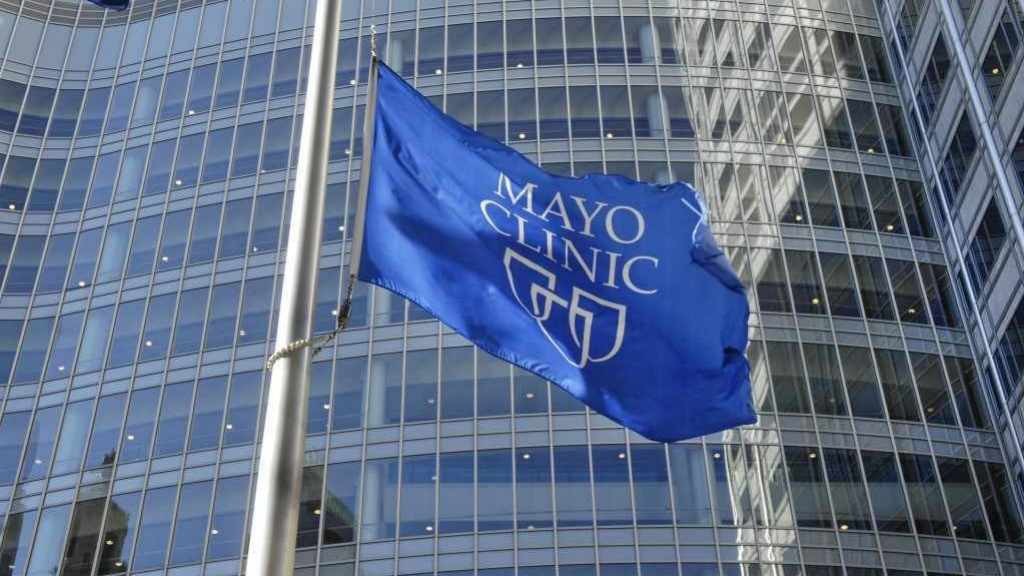-
COVID-19
Media backgrounder: COVID-19 readiness and helping the world respond to the global pandemic

ROCHESTER, Minn. — Mayo Clinic is well-prepared to treat patients with COVID-19 across the organization, while actively helping the world respond to the pandemic. As Mayo does this, it will openly share its expertise and point of view with policy makers, global health leaders and others, while making all decisions in a way that aligns with its core mission of putting the needs of the patient first.
Mayo Clinic’s preparedness plans
- Mayo Clinic has established pandemic identification and response protocols that helped it to anticipate the possibility that COVID-19 would become a pandemic. These protocols were in place and helped Mayo prepare.
- Many of the most serious cases of COVID-19 involve patients who have serious or complex medical conditions. This is Mayo Clinic's specialty, and Mayo's team-based approach is well-suited to give these patients the best possible care.
- Mayo Clinic staff at all locations have been trained and are prepared to care for patients with serious infections such as COVID-19. Mayo treats these patients and their conditions with an abundance of caution. Mayo Clinic has taken extraordinary steps, including postponing all but essential surgeries and procedures, and has been a leader in implementing masking and other processes to keep patients safe while responding to the pandemic.
- Mayo has strong and long-standing relationships with a wide range of partners and has worked with them to anticipate the possible increase in COVID-19 cases at Mayo Clinic locations. This includes working with supply chain partners, medical equipment suppliers and others to increase inventory, repurpose supplies and redirect essential resources to the places where they're most urgently needed.
More information about Mayo Clinic’s preparedness can be found on the Mayo COVID-19 web hub here. The latest Mayo news about COVID-19 can be found on Mayo Clinic News Network here.
Diagnostic testing
Mayo Clinic Laboratories has been a national leader in responding to the need for more and more quickly deployed testing for COVID-19. Anticipating demand for COVID-19 testing in late February, a Mayo Clinic team produced a laboratory-developed test within three weeks. In mid-March, Mayo partnered to increase its COVID-19 testing capacity to 4,000 tests per day, providing testing support for our own practices as well as helping to relieve backlogs in several states.
Mayo began serologic testing the week of April 6 and is working on additional tests that will enhance our ability to track the disease and understand immunity. You can find more information on serologic testing here.
Mayo Clinic joined Minnesota Gov. Tim Walz, Minnesota Department of Health Commissioner Jan Malcolm, the University of Minnesota and other health system leaders to announce a breakthrough initiative to provide rapid, widespread testing for COVID-19 in Minnesota. The goal is to test all symptomatic people, isolate confirmed cases to limit the spread, and expand surveillance tools for public health officials.
The partnership is being funded in part by $36 million from the COVID-19 Minnesota Fund. Under the agreement, the partners will:
- Create a central laboratory with capacity to perform 20,000 molecular and 15,000 serology tests daily.
- Establish a virtual command center to monitor daily testing needs and respond to outbreaks.
- Enable increased public health surveillance and research.
You can learn more about the partnership here and here.
Investigational convalescent plasma
Mayo Clinic is the lead U.S. institution providing coordinated access to investigational convalescent plasma for hospitalized patients with severe or life-threatening COVID-19, or those at high risk of progression to severe or life-threatening disease. The Food and Drug Administration (FDA) announced the designation on April 3.
Convalescent plasma refers to blood plasma collected from people who have recovered from COVID-19. The plasma is used to treat others with advanced illness. The plasma donor must have recovered from, and tested negative for, COVID-19 and be otherwise healthy. The patient is transfused with the donor's plasma, which contains antibodies that can attack the virus and may help patients recover more rapidly.
More background on convalescent plasma can be found on Mayo Clinic News Network here and on the COVID-19 Expanded Access Program website here.
COVID-19 Healthcare Coalition
Mayo Clinic initiated a COVID-19 Healthcare Coalition, a collaborative private-industry response to the pandemic. Its mission is to save lives by providing real-time learning to preserve health care delivery and protect U.S. populations. Each coalition partner brings unique assets, shares resources and plans, and works together to support those on the front lines in responding to COVID-19.
Mayo Clinic, Leavitt Partners, and several Massachusetts Institute of Technology faculty leaders were among the first to coalesce around this effort. These leaders asked MITRE Corp., a nonprofit technology research and development organization, to help coordinate the private sector response and serve as an independent party to facilitate communication, aggregate de-identified data — from clinical insights to resource requirements such as beds and ventilators — and coordinate the response. Coalition partners include Arcadia.io, athenahealth, Buoy Health, CommonWell Health Alliance, Epic, HCA Healthcare, Intermountain Healthcare, LabCorp, Leavitt Partners, MassChallenge, Mayo Clinic, Microsoft, MITRE, Rush University System for Health, Salesforce, University of California Healthcare System and Walgreens. More information about the coalition is here.
###
About Mayo Clinic
Mayo Clinic is a nonprofit organization committed to innovation in clinical practice, education and research, and providing compassion, expertise and answers to everyone who needs healing. Visit the Mayo Clinic News Network for additional Mayo Clinic news and An Inside Look at Mayo Clinic for more information about Mayo.
Media contacts:
Ginger Plumbo or Karl Oestreich, Mayo Clinic Public Affairs, newsbureau@mayo.edu
___________________________________________________________________________
For the latest updates on the COVID-19 pandemic, check the Centers for Disease Control and Prevention website. For more information and COVID-19 coverage, go to Mayo Clinic News Network and mayoclinic.org.







